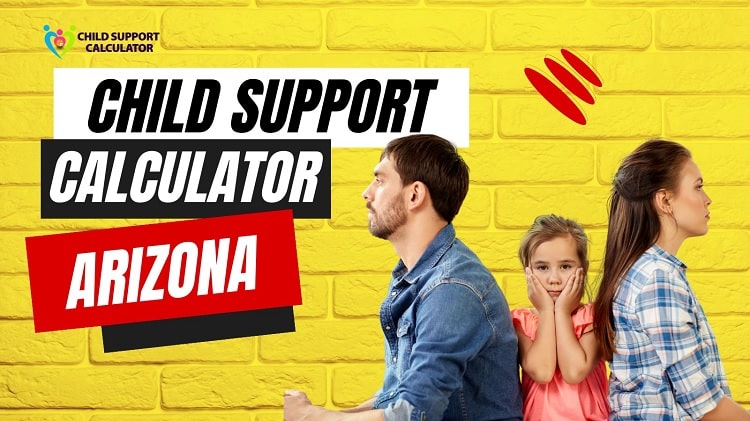Alimony In Illinois
According to Illinois alimony rules, a judge may decide that one ex-spouse may provide the other with monthly support payments during a divorce case. The essential needs of the recipient, such as housing, clothing, and food, are covered by these payments.
Payments for alimony are made separately from any child support obligations that a person might have as a result of situations involving child custody. Following a divorce or legal separation, alimony payments may aid the recipient party in regaining monetary sustainability. Either husband or the wife, anyone could be eligible for alimony.

In Illinois, a divorcing spouse may ask the court for alimony if they cannot provide for themselves or sustain a fair living standard on their own during or after the divorce.
The petitioning spouse’s request for alimony will be considered by the court along with all other aspects of the marriage and divorce. In Illinois, a party may only get spousal assistance or sustenance if they are utterly incapable of providing for themselves.The decision to grant fixed support that lasts for a set period of time or permanent support is at the discretion of the court.
This article will explain to you about alimony in Illinois.
Types Of Spousal Support In Illinois
There are numerous provisions regulating the determination and award of alimony during a divorce in the Illinois Marriage and Dissolution of Marriage Act (the “Act”). Alimony-related changes to the Act were recently made, and they became effective on January 1st, 2019. The four main categories of alimony that may be awarded in separation under the new statute are as follows:
Temporary Alimony In Illinois
Financial assistance given to one partner while the separation of the couple is underway is known as temporary alimony (sometimes known as “temporary maintenance”). Temporary alimony is typically granted in situations when the couple has made the decision to live apart and is meant to fund the participant’s living costs during the separation.
Even though it is possible to submit an application later on during the divorce settlement if needed, a partner who needs temporary alimony would also most likely just include an appropriate request in his or her first divorce filing. Once the divorce is finalized, a temporary alimony award expires.
Fixed-Term Alimony In Illinois
Fixed-term alimony is support granted for a predetermined time frame. This type of alimony is generally considered acceptable to help the recipient achieve economic independence (in other jurisdictions, this is known as “rehabilitative alimony”). In situations like these, a fixed-term alimony award will frequently be suitable:
- The spouse who is requesting alimony gave abandoned a career to take on childcare or housekeeping duties during the marriage;
- In order to rely on the income of the other spouse, the spouse requesting alimony passes up educational or training chances throughout the marriage;
- In order to maintain his or her current quality of living when alimony payments stop, the spouse seeking alimony has a restricted earning potential and must pursue education or training.
Reviewable Alimony
Comparable to fixed-term alimony but not granted for a set period of time is reviewable alimony. Instead, the recipient’s eligibility to receive payments must typically be consistent with making sincere attempts to support themselves and is subject to frequent court review. In situations when the recipient doesn’t have a clear route to independence or where having children prevents them from continuing their education or training without interruption, reviewable alimony may be suitable.
Permanent Alimony (Indefinite Alimony)
Permanent alimony is, as its name implies, monetary assistance granted for the participant’s lifetime. Permanent alimony is also—and maybe more adequately to be indefinite alimony under the Act because there are still situations under which it may be discontinued.
Permanent or indefinite alimony is only permitted under the Act in divorces involving marriages that lasted 20 years or more. According to the law, the court “must order either permanent maintenance or maintenance for a term equivalent to the duration of the marriage for a marriage of 20 years or more.”
Factors Determining spousal support
There are various forms of alimony in Illinois, including lump-sum payments, asset transfers, and recurring payments. The most typical kind of spousal support is periodic alimony, in which the sustaining spouse pays the supported partner on a regular basis (often monthly).
Though in exceptional circumstances and in long-term marriages, the court will provide permanent alimony. The court often sets periodic alimony for a specific period of time until either some incident happens.
Illinois courts will take into account the following elements when determining whether to grant a spouse alimony:
- Income, assets, and capacity for earning of each spouse
- Monetary requirements of each spouse.
- How long the marriage has been.
- The standard of living for the pair during their marriage.
- Age and health of each spouse.
- Whether the marriage caused either partner to put off going to school, getting a job, or both.
- The period required for either spouse to complete the necessary education or training to find employment.
- The effects of alimony payments to either spouse on taxes.
How Are Spousal Support Payments Calculated
Even while a judge has the choice to make whether or not to grant spousal support, if they do, they will typically utilize an Illinois law-provided formula to calculate how much should be paid. According to this method, support will be paid annually after subtracting 25 percent of the participant’s net annual income from 33-13 percent of the payor’s net yearly income. The recipient’s net yearly income cannot exceed 40% of the spouses’ total net annual income when added to the spousal assistance they receive.
It can be useful to think about some scenarios to get a better understanding of how spousal maintenance payments are calculated. In a hypothetical scenario, one spouse might make $180,000 a year while the other makes $30,000. 25 percent of $30,000 equals $7,500, and 33 1/3% of $180,000 is $60,000. $52,500 is the result of deducting $7,500 from $60,000 in total. The higher-earning partner would give the other spouse $4,375 each month because spousal support is often given on a monthly basis.
It’s crucial to remember that the rules for determining spousal maintenance are only applicable in situations where the total gross annual income of the spouses is less than $500,000. When determining the proper amount of support for couples who make more money than this, the judge will take into account all relevant considerations as well as the specifics of the couple’s individual situation.
Duration Of Spousal Support
The length of spousal support payments is determined by the length of a couple’s marriage. For marriages of various lengths, Illinois law establishes percentages that will be used. These proportions are:
- Less than five years: 20% of the marriage’s duration
- Between five and six years: 24% of the marriage’s duration
- Twenty-eight percent of the marriage’s duration is between six and seven years.
- Thirty-two percent of the marriage’s duration is between seven and eight years.
- Between eight and nine years: 36% of the marriage’s duration
- Forty percent of the marriage’s duration is between nine and ten years.
- Between 10 and 11 years: 44% of the marriage’s duration
- Between 11 and 12 years: 48% of the marriage’s duration
- Fifty-two percent of the marriage lasts between 12 and 13 years.
- 56 percent of the marriage’s duration was spent in the first 13 to 14 years.
- 60 percent of the marriage’s duration is between 14 and 15 years.
- 64 percent of the marriage lasts between 15 and 16 years.
- 68 percent of the marriage’s duration is between 16 and 17 years.
- 72% of the marriage’s duration occurred between the ages of 17 and 18.
- Between 18 and 19 years: 76% of the marriage’s duration.
- 80 percent of the marriage’s duration is between 19 and 20 years.
- 20 years or more: Either for the entire duration of the marriage or indefinitely
Using the percentages described above, spousal support may be granted for a set period of time, depending on the specifics of the case. The requirement to pay support will stop at the conclusion of this period, and a spouse will no longer be eligible to receive spousal support. If indefinite maintenance is granted, the court will not specify a termination date; instead, payments will continue until a request to modify or terminate support is granted.
The court may also decide to provide subject to review maintenance for a predetermined period of time. At the conclusion of this time, the judge will examine the conditions of the parties to decide whether or not payments should be continued, adjusted, or stopped.
A spouse who has been required to pay spousal support may file a petition after the divorce is finalized, asking for their obligations to be adjusted or canceled caused by changes in their situation.
A person might request a reduction in the payments, for instance, if they have lost their work or had other financial difficulties that have made it difficult for them to make the full amount of the order. If either party passes away, the recipient of maintenance marries again, or they start living with a new romantic partner, maintenance will also end.
Impact of Remarriage on Alimony in Illinois
In Illinois, alimony terminates when the supported spouse remarries unless the sides consent, although in their divorce settlement. As of the sponsored spouse’s remarriage date, the paying spouse may discontinue paying alimony. The paying partner is not required to go back to court or request a suspension of support.
At least 30 days before the wedding or within 72 hours of the union, the supported partner must give the paying partner notice. Any payments received after the wedding date must be reimbursed to the paying spouse.
Any obligations that were previously owing as of the date of the remarriage must still be paid by the paying spouse. Even if the supported spouse has remarried, the paying spouse is still required to finish any lump-sum payments or property transfers made as part of alimony.
In Illinois, paying spouses’ alimony obligations do not automatically change if they remarry. However, it is a consideration that the courts may take into account while determining whether to allow spousal support payments to remain. For instance, Illinois courts have ruled that a man shouldn’t always be required to support a childless former wife who is competent if he has remarried and is supporting a new family.
Termination or Modification of Alimony in Illinois
According to Illinois law, if there has been a significant change in opinion, any spouse may seek the court to reduce or terminate alimony payments. Based on the following factors, the court will determine whether to modify or terminate alimony:
- Change in job status of either spouse, including if it was chosen.
- Whether the spouse who is being assisted has made a sincere effort to become independent.
- The eventual inability of either spouse to produce income (for example, due to a disability).
- The effects of alimony payments on either spouse’s taxes.
- How long the marriage has lasted compared to how long alimony has been paid.
- Property that each spouse received as part of the divorce.
- Since the initial alimony award, either spouse’s income has increased or reduced.
- Property acquired since the alimony decision by either spouse.
- Any other aspect the court finds important.
You should submit a motion with the county court clerk’s office if you wish to change or stop receiving alimony payments. The court will set a hearing date at which both you and your ex-spouse are required to show up. In order to amend or end the current alimony payments, you must be ready to provide the court with proof of any of the aforementioned causes.
If you and your husband can come to an agreement on alimony, you can skip a hearing. If you come to a decision, document it in writing, have everyone sign it, and submit it to the county court clerk’s office.
How Do You Petition for Alimony In Illinois
In Illinois, alimony is requested by a party throughout the divorce process. In addition to requesting spousal support, maintenance, or alimony, a person must file for divorce.
In a divorce proceeding, alimony is not a given and is not granted unless it has been demanded. The court will consider the various considerations mentioned above after alimony is requested by a spouse to decide if a petitioner should be granted alimony as part of their separation.
A divorce lawyer or a family lawyer is necessary since getting a divorce and asking for alimony can be difficult processes. The submission of an alimony request, the termination of alimony, and any other required requests can all be made with the help of a person’s attorney.
It is crucial to continually make financial commitments in order to avoid being found in contempt of court if someone is the spouse who is forced to pay alimony, and they need to have the alimony order amended.
A breach of the court order would be considered not paying the alimony. A person should ask the court for a modification order if they need to change the alimony payments.
The party asking for the amendment must demonstrate that there have been significant changes since the order was initially issued. Evidence indicating a change in financial circumstances, such as being laid off, retiring, or getting sick, may be included in this.
A big change could also be the recipient spouse earning significantly more money and no longer needing alimony payments to maintain their financial stability. In other cases, the paying spouse may have to ask the court to stop receiving alimony completely.
When deciding whether or not to end alimony, a court will take into account a number of issues. A judge may be more inclined to approve a request to end alimony if certain circumstances exist, such as if the spouse providing the support:
- Lost their work and is now unable to make payments;
- Is afflicted with the condition that makes it harder for them to work;
- Would face severe financial difficulties if forced to pay;
- If they had to pay, they would be treated unfairly.
The party seeking to end alimony must convince the court that either a circumstance exists that could cause it to end automatically or that the party receiving it has been severely harmed economically and needs the payments to stop in order to avoid additional harm.
It is crucial to understand that even if the paying spouse purposely loses their job, resigns, or voluntarily reduces their income, a court is unlikely to decide to terminate alimony. Additionally, it may be challenging to demonstrate injustice, so having an attorney on your side who is familiar with the best kinds of evidence is beneficial.
Faqs
Can a wife get spousal support in Illinois?
A husband or a wife could be eligible for alimony. In Illinois, a divorcing spouse may ask the court for alimony if they are unable to provide for themselves or maintain a fair standard of living on their own during or after the divorce.
How long does a man pay alimony in Illinois?
Illinois can provide for permanent or lifelong alimony. Until one of the partners dies or remarries, this sort of alimony is in effect. Only marriages that lasted 20 years or longer are eligible for indefinite alimony orders.
Does a man have to pay alimony in Illinois?
According to the calculation used by Illinois maintenance laws to determine alimony payments’ quantity and duration, the higher-earning spouse must support the lower-earning spouse financially. There are no gender-specific laws, therefore husbands and wives are equally likely to receive help.
Does Illinois have lifetime alimony?
Yes, Illinois does provide for permanent or lifelong alimony. Until one of the partners dies or remarries, this sort of alimony is in effect. Only marriages that lasted 20 years or longer are eligible for indefinite alimony orders.







